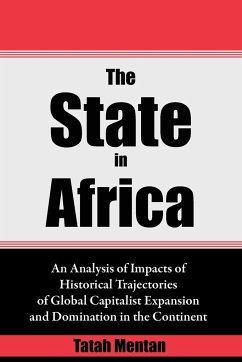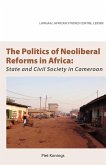This book critically analyzes the complex relationship between the African state and capitalist globalization. It describes in great detail the significant effects of the various historical trajectories of global capitalist expansion on the nature and functions of the African state while focusing on the present triumph of globalized neo-liberalism on the African continent. The history of the state in Africa has been misread and misinterpreted through the Eurocentric convictions of European African scholars alike. The State in Africa has, since its colonial inception, has served as the best possible political shell for capitalism, enabling it to penetrate, again possession and establish itself firmly and securely, regardless of institutional and leadership instability at the helm. The glaring artificiality of the state in Africa, coupled with the failure of the local ruling classes to rise above the limitations of their provenance, is to blame for the myriad crises of one-party authoritarianism, violent coups and military dictatorship. It is also to blame for the progressive alienation of the African people, and the prevailing crises of identity and citizenship. Independence does not seem to have changed much, as the state is still controlled by the most powerful foreign, economically dominant class, which, has appropriated political power as well to further compound the subjection and exploitation of the oppressed Africans. Today the continent continues to grapple with underdevelopment, civil wars, intra-state conflicts, political instability, state failure and outright collapse, thus calling into question the viability and survivability of the Westphalian state model in Africa.
Hinweis: Dieser Artikel kann nur an eine deutsche Lieferadresse ausgeliefert werden.
Hinweis: Dieser Artikel kann nur an eine deutsche Lieferadresse ausgeliefert werden.








